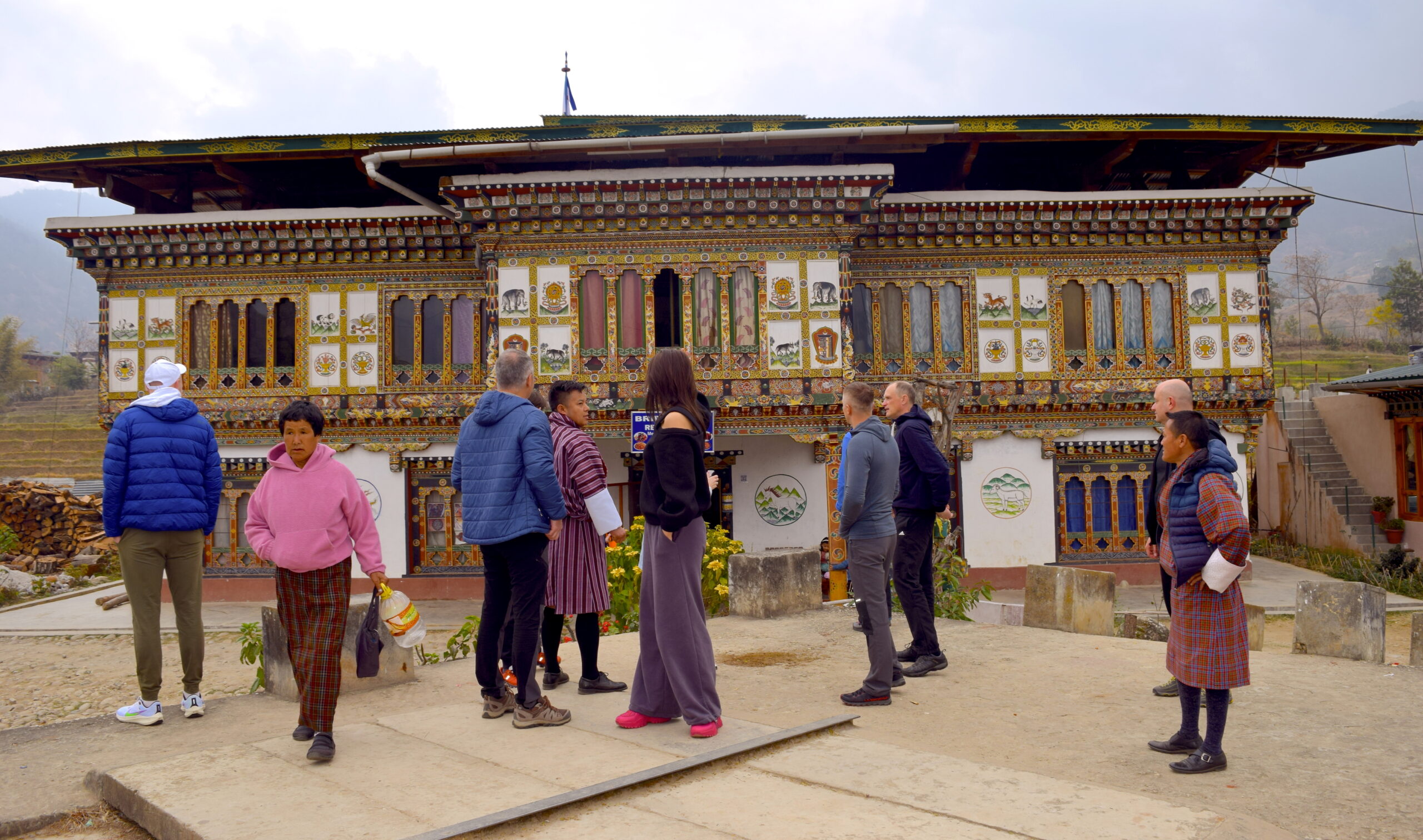Bhutan’s commitment to sustainable development is epitomized through its innovative community-based tourism initiatives. These initiatives not only offer travelers authentic cultural experiences but also empower local communities, promote environmental conservation, and foster socio-economic development.
At the heart of community-based tourism in Bhutan is the concept of homestays. Travelers have the opportunity to stay with local families in rural villages, immersing themselves in the daily life and traditions of Bhutanese communities. This intimate experience allows visitors to participate in household activities, share meals prepared with locally sourced ingredients, and engage in cultural exchange, fostering mutual understanding and appreciation.
Moreover, community-based tourism initiatives often involve the preservation and promotion of traditional arts and crafts. Bhutanese artisans, known for their skill in weaving, painting, woodcarving, and other crafts, play a central role in these initiatives. Travelers can visit artisan workshops and studios, where they can observe the intricate craftsmanship firsthand, learn about the cultural significance of these crafts, and even try their hand at creating their pieces under the guidance of local masters.
In addition to cultural experiences, community-based tourism initiatives in Bhutan also focus on environmental conservation and sustainable development. Many projects aim to protect the country’s pristine natural landscapes and biodiversity while promoting responsible tourism practices. This may include initiatives such as eco-friendly accommodations, waste management programs, and efforts to mitigate the environmental impact of tourism activities.
Furthermore, community-based tourism contributes to socio-economic development by generating income and employment opportunities for residents. By involving communities in the tourism value chain, these initiatives help to redistribute economic benefits more equitably and reduce dependency on external sources of income. This, in turn, contributes to poverty alleviation and the overall well-being of Bhutanese communities.
One example of a successful community-based tourism initiative in Bhutan is the Phobjikha Valley Conservation Area. Here, local communities work together to protect the endangered black-necked cranes that migrate to the valley each winter, while also offering visitors opportunities to learn about traditional farming practices, participate in conservation efforts, and engage in cultural activities such as mask dancing and archery.
In conclusion, Bhutan’s community-based tourism initiatives embody the country’s commitment to holistic development, sustainability, and cultural preservation. By empowering local communities, promoting environmental conservation, and fostering meaningful cultural exchange, these initiatives offer travelers a unique and enriching experience while contributing to the well-being of Bhutanese society as a whole.


